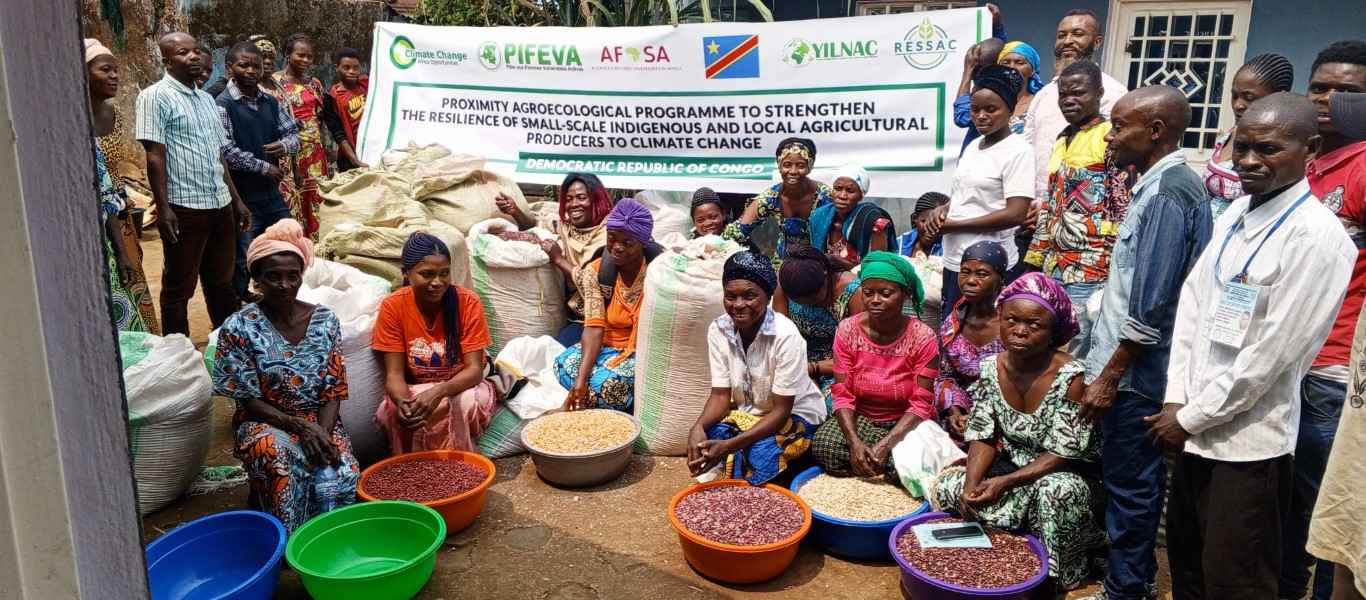
Context
In the current context of climate change and variability, the scaling up of production techniques based on the agroecological approach to the use of resources (land, water, flora, fauna, etc.) offers an opportunity in the Republic Democratic Republic of the Congo to meet the challenge of resilience in the face of food insecurity and nutritional deficiencies that affect poor households. Agroecological intensification is therefore the reference to the implementation by farmers of agricultural and livestock techniques and practices that enhance biological mechanisms for increased, sustainable and healthy production in the Democratic Republic of Congo.
Overall Objective
The overall objective of this program is to support the agroecological transition in the Democratic Republic of Congo in order to promote not only the emergence, adoption and dissemination of ecologically intensive practices in family farms but also the adoption of management and organization promoting this adoption Democratic Republic of Congo.
Specific objectives
Specifically, this program provides practitioners, political bodies and cooperation institutions with:
• on the one hand, technical-economic, social and environmental references concerning these agro-ecological techniques and,
• on the other hand, elements of analysis of the brakes and levers for their development, feeding the dialogue between actors, their reflections and their decisions.
Program components
Component 1: Support for agroecological transition for local actors
The objective of this component is to strengthen the capacities of organizations and small agricultural producers supported in the RESSAC area in the Democratic Republic of Congo.
Component 2: Exchanges, capitalization and contribution to the development of public policies
This component aims to set up mechanisms to promote exchanges between field projects and examines existing networks, the possibilities of integrating these exchanges into one or more networks in the field of agroecology. It also identifies, based on the concrete experiences of field projects, themes on which a change in public policies is necessary to support the agroecological transition (regulatory framework for the management of natural resources, marketing, training systems and agricultural advice, etc.).
Implementation strategy
Although the project's implementation strategy consists of popularizing agroecological technical innovations, it aims first and foremost to support the agroecological transition that producers have decided to undertake. This commitment can be the result of their own initiative but also of initiatives carried out by support-advice and development research structures. As a result, the procedures and levels of intervention will be more complex in the field.
Expected results and direct effects
The expected results and direct effects of the program include:
At the level of component 1:
• the validation by the collectives of partner producers of the projects of the agroecological innovations that they have tested in real size and/or in demonstration plots,
• the identification and implementation of support measures promoting the adoption of these innovations,
• the enrichment of producers' knowledge through learning on their farms and peer-to-peer exchanges
• improvement of the technical reference system for the ecologically intensive management of crop and livestock systems,
• synergies between the different components of agroecosystems (agriculture and livestock, trees and annual crops, rainfed crops, irrigated crops on small areas),
• production systems that are more resilient and able to cope with climate change.
At the level of component 2:
• Improving knowledge of innovation processes in agriculture based on the principles of agroecology,
• Strengthening the knowledge and capacity for reflection and action of producers, FO managers, executives of support-advice structures and decision-makers,
• The renewal of advisory support approaches (technical advice, operating advice, support for collective actions),
• support measures promoting agro-ecological transition,
• new regulations or the application of rules already adopted by States promoting agroecological transition
